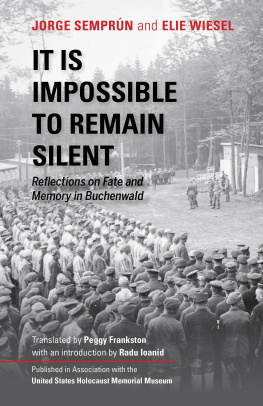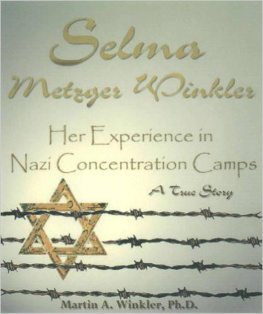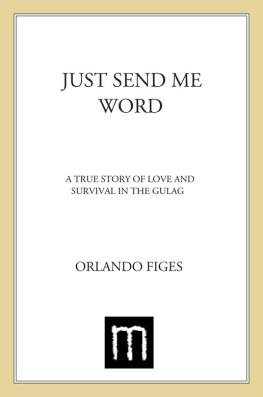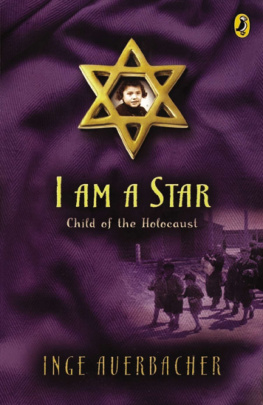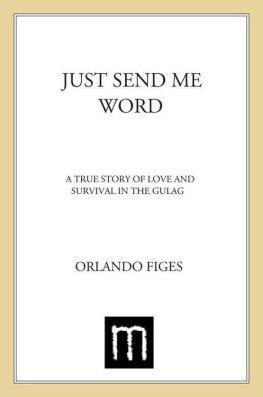Roses in a ForbiddenGarden
A HolocaustLove Story
By Elise Garibaldi
~~~
SmashwordsEdition
Copyright 2016 by Elise Garibaldi
www.elisegaribaldi.com
All rights reserved.Published by Decalogue Books. This book may not be reproduced, inwhole or in part, in any form without express permission from theauthor.
Library of CongressCataloging-in-Publication Data Garibaldi, Elise, 2015
Roses in a ForbiddenGarden by Elise Garibaldi
1. Holocaust. 2. Theresienstadt /Terezn. 3. German Jews. 4.Bremen.
FRONT COVER: Inge Katz at 17 years ofage
Smashwords Edition, License Notes
This ebook is licensedfor your personal enjoyment only. This ebook may not be re-sold orgiven away to other people. If you would like to share this bookwith another person, please purchase an additional copy for eachrecipient. If youre reading this book and did not purchase it, orit was not purchased for your use only, then please return toSmashwords.com and purchase your own copy. Thank you for respectingthe hard work of this author.
Dedication
In Loving Memory of
Ruthie Cohen, RosaGruenberg, Carl Katz,
Marianne (Gruenberg)Katz, Sam (Schmuel) Berger
Tableof Contents
Theresienstadt
November 11, 1943
Just get it over withalready , Inge murmuredto herself as she stared at the rising sun that rainy morning. Shecouldnt bear to hear her mother sobbing like that any longernorcould she stand how cruelly the elderly and weak were beingtreated. How inhumane to force them to stand out in the open forhours on end. The Germans counted, recounted, and counted again.Hour after hour they were forced to remain on their feet in orderlyrows and given nothing to eat or drink. Inges feet ached, and herback pained her. But what could they do with all those rifles aimeddirectly at them?
As the sun started to set, and darknessapproached, she couldnt help but notice how clear the night skyhad become. She could see the stars; there were so many right overtheir heads. It helped her to remember that there was a bigger andbetter world out there. Behind the high walls surrounding theghetto, and all the restricting barbed wire, she could catch aglimpse of the rolling hills. Yes, past the rifles ready to shoother in the back if she were to try running away, there was indeed abigger world. She could sense that it was orderly, beautiful, andpeaceful. It was possible for her to dream of Schmuel and of themarigold. That flower, she understood, he had given to her was meant not only as abirthday present but as a message from G-d that she was destined tolove and be loved. In that moment, she was able to forget about heraching feet and sore back, even about the sobbing women and thewavering elderly. She focused all her energy on how to search forhim, for Schmuel.
Chapter One
November 9, 1938
A Beautiful Life Shattered
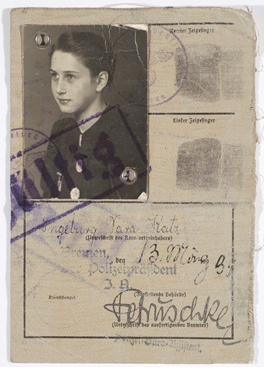
Inge SaraKatz, age 13. The Nazis added the middle name of Sara on allpassports and other official papers to identify any woman as beingJewish.
Inge, the daughter of CarlKatz , a successfulbusinessman in Bremen, Germany, had been disciplined from an earlyage not only to be respectful but well- mannered. That meant it wasimperative for her to always be groomed and properly puttogetherbut never to draw too much attention toherself.
Often dressed in pleated skirts and woolensweaters, shed only roll her long woolen socks down below herknees when she was away from her parents authoritativeeyes.
Her thick hair wasworn straight, extending below her jawline, and her sparkling greeneyes radiated in sharp contrast with her dark hair. The year was1938, and, at fourteen years of age, she was already several inchestaller than her mother. Sitting now at her grandmothers bedroomvanity, she loved to use Omas (German for grandma) silver brush tocomb her hair back behind her ears. Sometimes shed even spritzsome of her grandmothers 4711 cologne on her neck and wrists.
Having completedher efforts to make herself pretty, Inge got up from theupholstered stool accompanying the vanity to look out the windowand observe the pedestrian traffic on the street below. The Katzfamily was living in her grandmothers home, which was less than atwenty-minute walk from the cobblestoned center of Bremen, a citynot far from the North Sea. She loved to watch the bustle onweekday mornings. It was still an era when women didnt leave homewithout wearing a hat. She noted the men rushing by to get to workon time. It was autumn, and on such a brisk morning, everyone heldtheir hats with one hand against the oncoming winds and kept theirovercoats closed with the other.
The delivery boyfrom the local bakery, about to remount his bicycle, was making hisway from their front door and walking along the path to the irongate leading to the street. Inge loved the smell of the freshlybaked rolls delivered by these boys each morning in their smallcanvas knapsacks. As she made her way out the door of her bedroomshe shared with her grandmother to join her family downstairsaround the breakfast table, the smells of coffee brewing and warmmilk were already wafting up the stairwell to greet her.
Her father, as shereached the table, was quickly finishing off a soft-boiled egg, allthe while being careful not to get any spots on his tie as hedunked a piece of bread into it. Vati (German for dad) was ahandsome man, Inge thought, as she gazed at him in hiswell-tailored gray suit. During World War I, then known as theGreat War, over twenty years earlier, he had served Germany as ayoung soldier. Those years of training and combat had left him withan athletic and strong frame. He had classic even features, with astrong commanding jawline, which had served to intimidate more thana few men. But his large, flashing blue eyes could also evince muchlaughter and mischief. Inge doubted whether anyone would deny himany request when confronted with such wicked charms. She laughed toherselfat least she and her mother certainly couldnt. Vati tookone last sip of coffee and placed a hurried kiss upon Ingesforehead. After a brief reminder from him that she must mind herelders, Mutti (German for mom) walked him to the door. A faintsmell of tobacco and aftershave lingered in the air behind him ashe made his way out.
Even at this early hour, Inges mother was alreadywearing heels and had her hair freshly set into a wavy bob. Foryears, she had been tying her long brown hair into a knot behindher head. But her recent, then fashionable, haircut left Ingesfather disappointed. She was a woman who religiously kept an eye onthe latest styles and adapted them to suit herself. Mutti was ofslight proportions, and she prided herself on her ability tomaintain a tiny waistline after so many years. One wouldnt callher beautiful, but she had fine, pleasant-looking features, andmost everyone would say she was pretty. Marianne always knew how toput herself together in ways that could make heads turn when sheentered a room.
As soon as herfather left home that morning, Inge, too, wished she still had aschool to attend. But, after Hitlers Nuremberg Laws of 1935stripped German Jews of their citizenship, the expulsion of allJewish children from the public schools began in earnest. Inge andher cousin Ruthie had been the only Jewish children in their classat the Delmestrasse School. Even then, because they were Jewish,they were forced to sit in the last row. Whenever the principalspoke to the class on how despicable the Jews were, she feltashamed. He described how they would lie in coffins in their socialclubs and cheat and steal from others. Inge never found anythingthat was even conceivably true in his rants, but she was toofearful to even dream of correcting him. Instead, she and Ruthiejust sat quietly in their seats, hoping not to draw attention tothemselves.
Next page



